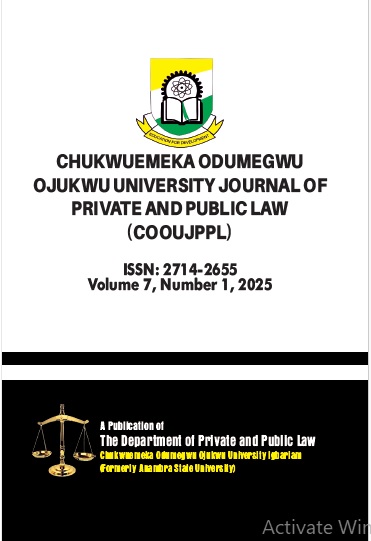INCLUSIVE GOVERNANCE: GENDER REPRESENTATION AND EQUITY IN AFRICA’S POLITICAL ECONOMY
Abstract
Inclusive governance as it relates to gender equality entails equal access to opportunities for men and women in every sphere. It is a fact that politics affect the economy, and vice versa, hence it is therefore critical that men and women are equitably represented in governance in order to make positive impact in every sector particularly in the political and economic sector. The aim of this study is to advocate for gender equality in governance by providing structures that encourage women participation and curbing factors that discourage gender exclusion. This is apposite for maximum efficiency because affording women a level playing ground with their male counterparts will increase productivity and growth in African nations. The method employed is doctrinal and the work is analytical and comparative in scope. The study x-rayed extant laws that promote gender equality, it analysed factors that exacerbate gender parity and found that despite plethora of laws on gender equality at international, regional and municipal level that many women are still marginalized in governance particularly in politics and economic sector in Africa. Further, the work observed that there is a nexus between economic rights and politics. The study observes that inclusive governance strengthens the society by spreading resources across the board, affording every citizen the opportunity access socioeconomic rights at every level. While exclusion breeds poverty and insecurity in the system. Accordingly, the paper recommends review and implementation of extant laws such as 1999 Constitution. Further, Nigeria should make laws that are gender sensitive and encourage inclusive representation in their policies. While eradication of factors that exacerbate inequality is apposite.

